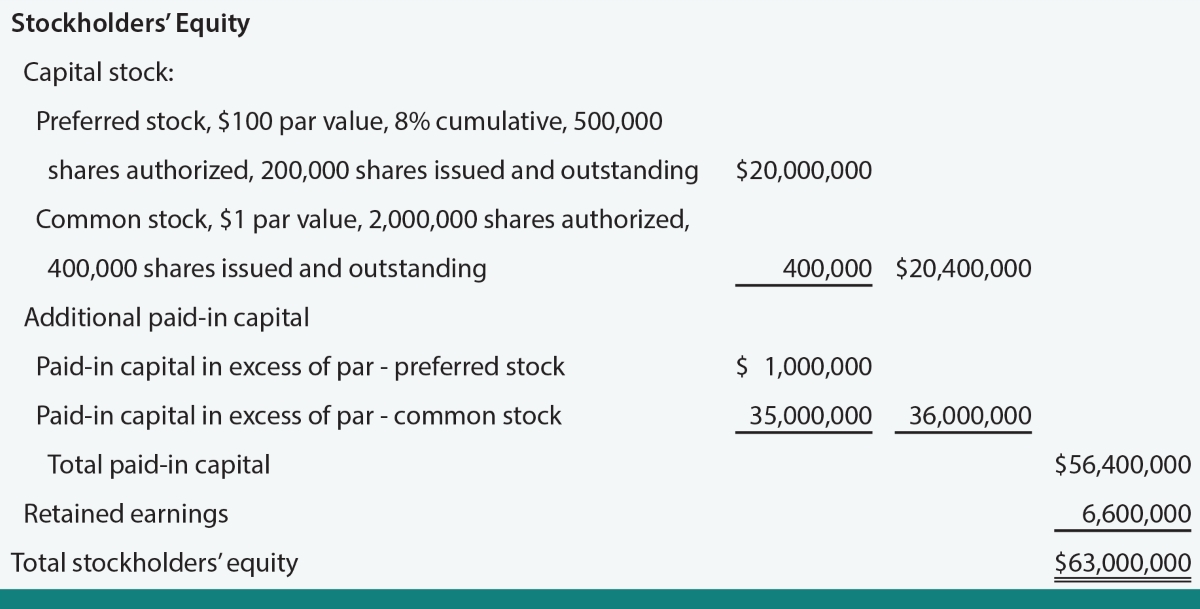

Finance
Where To Invest In Hydrogen Energy Stocks
Published: January 19, 2024
Looking to invest in hydrogen energy stocks? Discover the best finance opportunities for investing in this futuristic and sustainable industry.
(Many of the links in this article redirect to a specific reviewed product. Your purchase of these products through affiliate links helps to generate commission for LiveWell, at no extra cost. Learn more)
Table of Contents
- Introduction
- Understanding Hydrogen Energy
- The Growing Demand for Hydrogen Energy
- Factors to Consider When Investing in Hydrogen Energy Stocks
- Top Companies in the Hydrogen Energy Sector
- Potential Risks and Challenges in Investing in Hydrogen Energy Stocks
- Best Strategies for Investing in Hydrogen Energy Stocks
- Conclusion
Introduction
Investing in hydrogen energy stocks has become increasingly popular as the world looks for sustainable sources of energy. Hydrogen, known for its clean and renewable properties, is emerging as a key player in the transition towards a greener future. With government initiatives and increased investments in the sector, the demand for hydrogen energy is expected to grow exponentially in the coming years.
Hydrogen energy is derived from the process of splitting water molecules into hydrogen and oxygen. The hydrogen thus obtained can be used as a fuel for various applications, including transportation, electricity generation, and industrial processes. What makes hydrogen particularly appealing is that it can be produced using renewable sources, such as wind and solar power, making it an environmentally friendly alternative to traditional fossil fuels.
The growing awareness of the need to reduce carbon emissions and combat climate change has led to a surge in interest and investments in the hydrogen energy sector. Governments across the globe are implementing policies and regulations to promote the adoption of hydrogen-based technologies. This has created a favorable investment environment and significant growth opportunities for those who choose to invest in hydrogen energy stocks.
Moreover, the increasing deployment of hydrogen fuel cell vehicles and the establishment of hydrogen refueling infrastructure have further fueled the demand for hydrogen energy. Companies that are engaged in the production, distribution, and utilization of hydrogen and fuel cell technologies have been attracting attention from investors looking to capitalize on this growing market.
However, investing in hydrogen energy stocks is not without its challenges. The industry is still in its early stages, with many companies facing technological and regulatory hurdles. It is important for investors to thoroughly research and analyze the market, as well as the financial health and potential risks of the companies they are considering investing in.
In this article, we will explore the various aspects of investing in hydrogen energy stocks. We will delve into the factors to consider when making investment decisions, highlight some of the top companies in the sector, and discuss the potential risks and challenges that investors may face. Additionally, we will provide insights and strategies to help investors make informed choices when venturing into the exciting world of hydrogen energy investments.
Understanding Hydrogen Energy
Hydrogen energy is a clean and efficient source of power that has gained significant attention in recent years. It is derived from the chemical element hydrogen, which is the most abundant element in the universe. When used as a fuel, hydrogen can produce energy without emitting harmful greenhouse gases or pollutants, making it an attractive option for a sustainable future.
One of the key properties of hydrogen is its versatility as an energy carrier. It can be produced using various methods, including electrolysis, steam methane reforming, and biomass gasification. It can also be derived from renewable sources such as solar and wind power, leading to a more sustainable and environmentally friendly energy production process.
Hydrogen energy can be harnessed through different technologies, with one of the most promising being fuel cells. A fuel cell converts the chemical energy stored in hydrogen into electricity through an electrochemical reaction. This electrical energy can then be used to power vehicles, homes, and even entire cities.
Another application of hydrogen energy is in the form of combustion. Hydrogen can be burned directly in internal combustion engines, similar to gasoline or natural gas. However, combustion of hydrogen produces only water vapor as a byproduct, making it a truly clean and emission-free fuel source.
One of the main advantages of hydrogen energy is its high energy density. Compared to traditional batteries, hydrogen stores a large amount of energy per unit of mass, making it ideal for long-range transportation and energy storage. This is particularly important in sectors such as aviation, where battery technologies have limitations in terms of range and weight.
Furthermore, hydrogen energy offers a pathway to decarbonize sectors that are difficult to electrify directly, such as heavy-duty transportation and industrial processes. By replacing fossil fuels with hydrogen, these sectors can significantly reduce their carbon footprint and contribute to global efforts to limit climate change.
While hydrogen energy holds enormous potential, there are still challenges that need to be addressed. One of the main obstacles is the cost of production and infrastructure development. Currently, hydrogen energy is more expensive to produce compared to conventional fuels, and the lack of a comprehensive hydrogen infrastructure makes it difficult to distribute and utilize hydrogen on a large scale.
However, advancements in technology and increasing investments in the hydrogen sector are driving down costs and accelerating the development of infrastructure. With continued innovation and government support, hydrogen energy has the potential to become a key player in the transition to a low-carbon economy.
The Growing Demand for Hydrogen Energy
The demand for hydrogen energy has been steadily increasing as governments, businesses, and consumers strive to reduce carbon emissions and transition to more sustainable sources of energy. There are several key factors driving this growing demand:
- Climate Change Mitigation: Concerns about climate change and the need to reduce greenhouse gas emissions have led to a greater emphasis on clean and renewable energy sources. Hydrogen energy, with its zero-emission properties, offers a viable solution to tackle climate change and mitigate the environmental impact of traditional fossil fuels. The global push for carbon neutrality and the implementation of stricter emissions regulations are further propelling the demand for hydrogen energy.
- Transportation Sector: The transportation sector is a major contributor to greenhouse gas emissions. As countries strive to transition to a low-carbon transportation system, hydrogen fuel cell vehicles (FCVs) are gaining traction. FCVs offer longer driving ranges and shorter refueling times compared to electric vehicles, making them suitable for applications such as long-haul trucking, buses, and even passenger cars. Additionally, hydrogen-powered trains and ships are being developed, further driving the demand for hydrogen energy in the transportation sector.
- Energy Storage: One of the challenges of renewable energy sources such as wind and solar power is their intermittent nature. Hydrogen energy can play a vital role in storing excess energy during peak production periods and releasing it when needed. Through electrolysis, excess electricity can be used to produce hydrogen, which can then be stored and later converted back into electricity as needed. This ability to store and release energy on-demand makes hydrogen a key player in the transition towards a more reliable and flexible power grid.
- Industrial Processes: The industrial sector is another area where hydrogen energy is experiencing growing demand. Hydrogen is widely used in industries such as chemical manufacturing, refining, and steel production. Traditionally, hydrogen has been produced using fossil fuels, resulting in carbon emissions. However, with the shift towards green hydrogen production methods using renewable energy sources, industries are increasingly adopting hydrogen as a cleaner alternative fuel and feedstock.
Governments around the world are recognizing the potential of hydrogen energy and are implementing policies to support its development. In many countries, financial incentives, grants, and subsidies are being provided to promote the production and use of hydrogen. These initiatives are not only driving the demand for hydrogen, but also attracting investments from both public and private sectors.
Furthermore, collaborations between energy companies, automakers, and technology providers are accelerating the development of hydrogen infrastructure and technologies. Investments are being made in research and development to improve the efficiency and cost-effectiveness of hydrogen production, storage, and distribution.
As the demand for hydrogen energy continues to grow, it presents significant opportunities for investors who are looking to participate in the transition to a greener and more sustainable future. By investing in companies involved in the production, distribution, and utilization of hydrogen and fuel cell technologies, investors can tap into a promising market and contribute to the global efforts to combat climate change.
Factors to Consider When Investing in Hydrogen Energy Stocks
Investing in hydrogen energy stocks can be a lucrative opportunity, but it is crucial to evaluate various factors before making investment decisions. Here are some key factors to consider when investing in hydrogen energy stocks:
- Market Growth and Potential: Assess the current and future market growth potential of the hydrogen energy sector. Look at the projected demand for hydrogen, the government support and initiatives, and the development of infrastructure. A growing market indicates a higher potential for returns on investment.
- Company Financials: Evaluate the financial health and stability of the companies you are considering to invest in. Analyze their revenue growth, profitability, debt levels, and cash flow. Consider factors such as research and development investment and ongoing projects that may impact the company’s financial performance.
- Technology and Innovation: Examine the company’s technological capabilities and its position within the hydrogen energy value chain. Look for companies that have innovative and efficient technologies in hydrogen production, storage, and utilization. This will give them a competitive advantage in the market.
- Partnerships and Collaborations: Assess the company’s strategic partnerships and collaborations with other industry players. Strong partnerships indicate the company’s ability to leverage resources, share expertise, and access a broader customer base. It can also signify the company’s credibility and market position.
- Regulatory Environment: Understand the regulatory landscape and government policies related to hydrogen energy. Government support and favorable regulations can provide a conducive environment for the growth of the sector. Stay updated on potential changes in regulations that may impact the industry and the specific companies you are interested in.
- Competitive Landscape: Analyze the competitive landscape within the hydrogen energy sector. Identify key players and assess their market share, competitive advantage, and differentiation. Consider factors such as intellectual property, patents, and the company’s ability to scale and meet market demands.
- Risks and Challenges: Be aware of the risks and challenges associated with investing in the hydrogen energy sector. These may include technological risks, market volatility, policy changes, and competition from alternative energy sources. Conduct thorough research and risk analysis to make informed investment decisions.
It is important to note that investing in the stock market always carries risks, and no investment is guaranteed to be profitable. Diversification and a long-term investment approach can help mitigate some of these risks. Consulting with a financial advisor or doing thorough research can provide valuable insights and guidance in making investment decisions.
By considering these factors and staying informed about the dynamic nature of the hydrogen energy sector, investors can position themselves for potential growth and success in this exciting and evolving industry.
Top Companies in the Hydrogen Energy Sector
The hydrogen energy sector is witnessing rapid growth, and several companies are at the forefront of driving innovation and advancing the adoption of hydrogen technologies. Here are some top companies in the hydrogen energy sector:
- Ballard Power Systems: Ballard Power Systems is a leading provider of fuel cell solutions for various applications, including transportation, backup power, and material handling. The company specializes in proton exchange membrane (PEM) fuel cell technology and has established strategic partnerships with major automotive manufacturers.
- Plug Power: Plug Power is a prominent player in the hydrogen fuel cell industry, particularly in the material handling and logistics sector. The company develops hydrogen fuel cell systems that power forklifts and other industrial vehicles, offering improved efficiency and reduced emissions.
- Nel ASA: Nel ASA is a global company focused on hydrogen production, storage, and distribution solutions. The company offers electrolyzers for green hydrogen production and hydrogen refueling stations for both light and heavy-duty vehicles. Nel ASA is actively involved in the development of hydrogen infrastructure worldwide.
- Air Liquide: Air Liquide is a multinational company involved in industrial gases and services, including hydrogen production and distribution. The company invests in hydrogen technology research and development, and it operates hydrogen refueling stations in various countries.
- Toyota: Toyota is a leading automaker that has been driving the development and commercialization of hydrogen fuel cell vehicles. Their flagship model, the Toyota Mirai, utilizes hydrogen fuel cell technology, offering a zero-emission alternative for transportation.
- Hydrogenics Corporation: Hydrogenics Corporation is involved in the design, manufacturing, and installation of hydrogen generation and fuel cell systems. The company caters to various sectors, including power generation, transportation, and industrial applications.
- McPhy Energy: McPhy Energy specializes in hydrogen production, storage, and distribution solutions. The company offers innovative electrolysis systems to produce green hydrogen and provides hydrogen storage and delivery solutions for different industries.
- Ballard Power Systems: Ballard Power Systems is a leading provider of fuel cell solutions for various applications, including transportation, backup power, and material handling. The company specializes in proton exchange membrane (PEM) fuel cell technology and has established strategic partnerships with major automotive manufacturers.
- Cummins Inc.: Cummins Inc. is a global power and hydrogen technology company that designs, manufactures, and distributes fuel cell systems. The company is actively developing hydrogen fuel cell solutions for various applications, including trucking, rail, and marine transportation.
- PowerCell Sweden AB: PowerCell Sweden AB is a leading supplier of fuel cell systems for various applications, including automotive, marine, and stationary power. The company focuses on developing compact and efficient fuel cell stacks suitable for different power requirements.
These companies represent just a fraction of the notable players in the hydrogen energy sector. It is essential to conduct thorough research and analysis, considering various factors such as financial health, market position, and technological advancements before making investment decisions. The hydrogen energy sector is highly dynamic, and staying updated on industry developments can help investors identify potential opportunities for growth and success.
Potential Risks and Challenges in Investing in Hydrogen Energy Stocks
Investing in hydrogen energy stocks offers promising potential, but it is important to be aware of the potential risks and challenges involved. Here are some key considerations for investors:
- Technological Challenges: The hydrogen energy sector is still in its early stages of development, and there are ongoing technological challenges that need to be overcome. This includes improving the efficiency of hydrogen production, storage, and distribution, as well as addressing durability and cost issues associated with fuel cell technologies. Investors should carefully assess the technological capabilities and innovations of the companies they are considering investing in.
- Market Volatility: Like any sector, the hydrogen energy industry is susceptible to market volatility. Factors such as changes in government policies, advancements in alternative energy sources, and shifts in consumer preferences can impact stock prices. It is important for investors to be prepared for short-term fluctuations and adopt a long-term investment strategy.
- Regulatory Environment: The development and growth of the hydrogen energy sector are heavily influenced by government policies and regulations. Changes in regulations, subsidies, or incentives can significantly impact the profitability and viability of companies in the sector. Investors should stay informed about the evolving regulatory landscape and potential policy shifts that may affect their investments.
- Infrastructure Development: The widespread adoption of hydrogen energy requires the development of a comprehensive infrastructure, including hydrogen production, storage, and distribution facilities. The lack of a well-established infrastructure can be a barrier to the growth and commercialization of hydrogen technologies. Investors should consider the progress of infrastructure development in the regions where the companies operate and assess the potential impact on their investments.
- Competition and Market Share: The hydrogen energy sector is becoming increasingly competitive, with numerous companies vying for market share. Established energy companies, as well as startups, are entering the market, creating a competitive landscape. Investors should carefully assess the competitive position and differentiation strategies of the companies they are considering investing in.
- Financing and Funding: The capital-intensive nature of hydrogen energy projects can pose financing challenges. Companies may face difficulties in securing adequate funding for research, development, and commercialization of their technologies. Investors should evaluate the financial stability and funding capabilities of the companies they plan to invest in.
- Perception and Public Acceptance: The public’s perception and acceptance of hydrogen energy technologies can influence the growth and adoption of the sector. Negative perceptions or misconceptions about hydrogen safety or efficiency may hinder market penetration. Investor confidence can be affected by public sentiment towards the industry. Monitoring public sentiment and awareness is important for assessing long-term prospects.
It is essential for investors to conduct comprehensive research and due diligence before investing in hydrogen energy stocks. This includes analyzing the financial health, technological advancements, competitive landscape, and regulatory environment of the companies under consideration. Consulting with a financial advisor or expert in the field can provide invaluable insights and guidance in navigating the potential risks and challenges in the hydrogen energy sector.
Best Strategies for Investing in Hydrogen Energy Stocks
Investing in hydrogen energy stocks requires a strategic approach to maximize potential returns and mitigate risks. Here are some key strategies to consider when investing in the hydrogen energy sector:
- Diversify Your Portfolio: As with any investment, diversification is essential. Invest in a range of hydrogen energy stocks across different companies, sectors, and regions to spread your risk. By diversifying your portfolio, you can potentially benefit from the growth of multiple players in the industry and minimize the impact of any individual stock’s performance.
- Long-Term Investment Approach: The hydrogen energy sector is still in its early stages, and significant growth may take time. Adopting a long-term investment approach allows you to ride out short-term fluctuations and capture the potential value appreciation of hydrogen energy stocks over time. Prolonged market growth and advancements in technology can lead to increased investor confidence and attract more capital to the sector.
- Research and Analyze Companies: Thoroughly research and analyze the companies you are considering investing in. Look for companies with a solid financial position, a robust technological pipeline, and a clear value proposition. Consider the company’s partnerships, collaborations, and competitive advantages. Understanding the fundamentals of the companies can help you make informed investment decisions.
- Stay Updated on Industry Developments: Stay informed about the latest trends, technological advancements, and regulatory changes in the hydrogen energy sector. Follow industry news, attend conferences, and engage with experts in the field. By staying updated, you can identify emerging opportunities, understand market dynamics, and make proactive investment decisions.
- Monitor Government Policies and Incentives: Government policies and incentives play a significant role in shaping the growth of the hydrogen energy sector. Stay informed about the regulatory environment, subsidies, grants, and tax incentives offered by various governments. These measures can impact the financial viability of hydrogen energy projects and determine the market demand for hydrogen technologies.
- Consider the Entire Value Chain: Evaluate companies that operate across the entire hydrogen energy value chain, from hydrogen production to storage, distribution, and utilization. Investing in companies with a diverse range of offerings allows you to potentially benefit from various revenue streams and capitalize on different growth opportunities within the sector.
- Assess Risk and Seek Professional Advice: In any investment, it is crucial to assess and manage risks. Identify the potential risks associated with investing in the hydrogen energy sector, such as technology, market volatility, regulatory changes, and competition. Seek professional advice from financial advisors or experts with knowledge of the sector. They can provide insights and guidance tailored to your investment goals and risk tolerance.
Remember, investing in the stock market carries inherent risks, and the hydrogen energy sector is no exception. Conduct thorough research, diversify your portfolio, and take a long-term approach. Additionally, regularly review and adjust your investment strategy based on market conditions and the performance of individual stocks in your portfolio.
Investing in hydrogen energy stocks can be a rewarding endeavor, given the sector’s potential for future growth, technological advancements, and the global transition to sustainable energy sources. By adopting a well-informed and strategic approach, you can position yourself to benefit from the exciting opportunities presented by hydrogen energy investments.
Conclusion
Investing in hydrogen energy stocks offers a unique opportunity for investors to align their portfolios with the global shift towards clean and sustainable energy sources. The growing demand for hydrogen energy, driven by concerns over climate change and the need to reduce greenhouse gas emissions, presents significant growth potential in the sector.
Understanding hydrogen energy and its various applications, such as transportation, energy storage, and industrial processes, is crucial when considering investments in the sector. It is important to evaluate the financial health, technological capabilities, and competitive advantages of companies involved in hydrogen production, distribution, and utilization.
While there are risks and challenges associated with investing in the hydrogen energy sector, such as technological hurdles, market volatility, and regulatory changes, prudent strategies can help investors navigate these challenges. Diversifying your portfolio, adopting a long-term investment approach, and staying informed about industry developments are key strategies to consider.
Additionally, monitoring government policies and incentives, as well as staying updated on technological advancements, will enable investors to seize opportunities and make informed investment decisions. Seeking professional advice and conducting thorough research are also important in assessing risks and maximizing potential returns.
Investing in hydrogen energy stocks requires patience, due diligence, and a forward-looking mindset. As the sector continues to evolve and develop, there is significant potential for growth and innovation. By capitalizing on this emerging market, investors can play an active role in the global transition to a cleaner and more sustainable energy future.
Ultimately, investing in hydrogen energy stocks can not only yield financial returns but also contribute to the collective effort of creating a greener planet for future generations.














